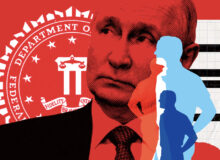(May 21, NOLA.com) The New Orleans City Council would be making a huge mistake if it approves legislation, tentatively on the schedule for May 25, to codify union bargaining rights for city employees.
With city services already infamously unreliable, New Orleans needs to move in entirely the opposite direction from a union straitjacket. All across the country, public-sector unions have created sclerotic, unresponsive, unaccountable bureaucracies. Unlike private-sector unions, public-employee unions by their very nature rig the system against the public interest.
Credit Sarah Harbison, general counsel for the Pelican Institute, for flagging the well-intentioned but misguided proposal by Council Vice President Helena Moreno. “Collective bargaining agreements (CBAs) are typically negotiated in secret and remain in effect for years at a time,” Harbison wrote on May 11. “They generally govern pay, working conditions, and establish a reduction in force protocol that typically retains workers based on seniority rather than merit.”
Union CBAs can be fine things in many instances in private enterprise, but even famously liberal President Franklin D. Roosevelt and longtime AFL-CIO union leader George Meany fiercely argued that unionizing should be anathema for public bureaucracies. Meany said that it is “impossible to bargain collectively with the government,” and Roosevelt explained that “the process of collective bargaining… cannot be transplanted into public service.”
Philip K. Howard, the famed, centrist public-reform advocate and author of The Death of Common Sense, explains all this in his book published this year called Not Accountable: Rethinking the Constitutionality of Public Employee Unions. He explains that by their very nature, public-employee unions enjoy “extortive power.” Unlike in free enterprise, where “factories can be moved elsewhere when labor demands are unreasonable,” public unions experience “little downside risk with excessive collective-bargaining demands” because “government can’t go out of business.” The unions do not face “any other organized opposing force” such as business executives worried about profits.
Once ensconced, such unions become a political force in and of themselves, holding hostage with their votes the same officials who are elected by the public to provide oversight of the public treasury.
“Collective bargaining agreements effectively bar the most important management tool – accountability,” Howard writes. “They also preclude basic management choices – including reassigning personnel and allocation responsibilities for projects.”…. [The full column is at this link.]






